Twenty-nine University of Otago academics are being promoted to the position of Professor this year.
Acting Vice-Chancellor Professor Helen Nicholson says the promotions are testament to the group’s unwavering commitment to excellence in research, teaching, and service.
“The elevation to the rank of Professor is a significant milestone in one's academic journey, reflecting not only individual achievement but also the positive impact they have had on our academic community.
“It is acknowledgment that their dedication to advancing knowledge, fostering critical thinking, and contributing to the vibrant intellectual environment of our University has not gone unnoticed.”
It is particularly pleasing to see this success across all four academic divisions from Dunedin, Christchurch and Wellington, she says.
Otago's promotion process involves thorough evaluation of each individual's record of contributions to research, teaching, and service to the University and community. It also involves input from international experts in evaluating the candidates' research contributions.
A further 22 academics are being promoted to Associate Professor and Research Associate Professor.
The promotions take effect from 1 February 2024.
Staff promoted to Professor (in alphabetical order)
Vivienne Anderson
University of Otago College of Education
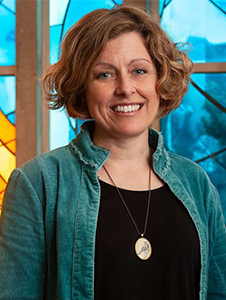
Vivienne Anderson.
Vivienne is Dean of the University of Otago College of Education, and a former teacher. She is passionate about the right of all children and young people to access quality education, and the power for education to change lives for the better. Vivienne’s research sits at the policy-practice interface, exploring questions relating to educational equity and access, educational mobility, and education pathways. She collaborates with colleagues in a range of educational contexts, including schools, universities and vocational education; and health professional programmes. Vivienne’s research has been funded by Ako Aotearoa, the Ministry of Education, UNESCO and the New Zealand Dental Association. Vivienne has supervised postgraduate students conducting educational research in Cambodia, Japan, Fiji and Malaysia as well as Aotearoa. Her recent research utilises arts-based, multilingual methods to explore refugee-background young people’s experiences navigating education. This has led to ongoing engagement with policymakers and practitioners working across education, immigration and resettlement.
Caroline Bell
Department of Psychological Medicine (UOC)
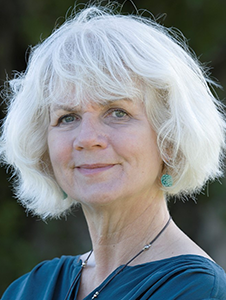
Caroline Bell.
Caroline is a psychiatrist whose research has focussed on anxiety and understanding how people respond after traumatic events. Her research has examined the spectrum of outcomes after exposure to the Canterbury earthquakes in 2010/2011 and the mosque attacks in 2019. This has included those with significant distress and those identifying as resilient. She is also investigating the factors associated with both adverse and positive outcomes such as resilience and post-traumatic growth, and the role culture, spirituality and religion may play. Caroline led the planning and implementation of the clinical and psychosocial responses to both the earthquakes and the mosque attacks. She has shared findings from her work widely with communities and agencies across New Zealand in the context of other natural disasters. Her work has been funded by the Health Research Council and Canterbury Medical Research Foundation.
Tania Cassidy
School of Physical Education, Sport and Exercise Sciences
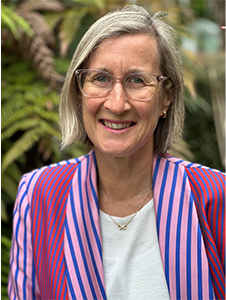
Tania Cassidy.
Tania’s research passion is pedagogy and she uses educational theories to explore the interconnections between the coach, athlete, content and context. Her passion has led her to challenge the orthodoxies associated with coach development, athlete learning and development as well as with talent identification. Recently, Tania has become interested in understanding why people lead and how they negotiate ambiguity, adapt to rapid change whilst being relevant in increasingly diverse societies. Tania’s research informs her teaching. Her first book was ranked 6/1000 bestselling book of all time on the Routledge sport list and was described as “a paradigm shift” which “has influenced an entire generation of coaching researchers and practitioners working today”. Tania’s leadership to the profession includes co-ordinating with the Taiwanese Ministry of Education to develop in-service programmes for their coaches and athletes, and holding advisory roles at NZ Hockey, NZ Cricket and NZ Football.
Shyamal Das
School of Pharmacy
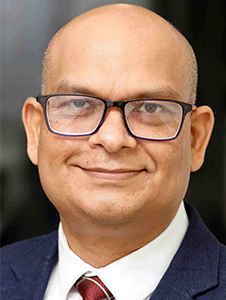
Shyamal Das.
Shyamal is a pharmaceutical scientist with expertise in drug formulation and delivery. His research focus is on innovative inhaler formulations for lung diseases and other viral and drug-resistant bacterial infections. Using a variety of engineering techniques, he produces formulations of small molecules and biologics and investigates the properties required for clinical translation. With funding from the Health Research Council, he has progressed one of the formulations to clinical trials. Shyamal started his academic career in Bangladesh in 2000, and obtained his PhD at the Monash Institute of Pharmaceutical Sciences, Australia, before joining the University of Otago. He has received multiple awards for teaching, research and supervision and in 2022 gained UK Council of Graduate Education certification. Shyamal is the Associate Dean of Research at the School of Pharmacy, and is President of the Otago Medical School Research Society, and of the Controlled Release Society New Zealand Chapter. He was a KiwiBank Local Hero 2021, for leading the voluntary production of hand sanitiser during the COVID-19 lockdown.
Sinéad Donnelly
Department of Medicine (UOW)
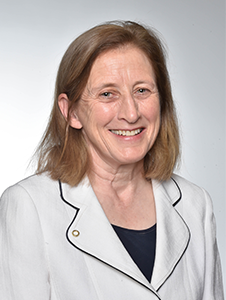
Sinéad Donnelly.
Sinéad was born and trained in Ireland as a palliative and general medicine physician, and now works at Wellington Hospital. She completed her research doctorate at the Cleveland Clinic, USA. She is enthusiastic about qualitative research and its applicability to palliative medicine research in ethics, education and patient care. As Palliative Medicine Module Convenor at Otago, Sinéad has fostered strong links between clinical teachers and university staff. This collaborative approach has fostered new ideas for research and teaching, including use of creative media for students to reflect on their clinical experiences. She is guided by the Irish seanfhocail or whakataukī, “Ar scāth a cēile a mhaireann na daoine”, “In the shade of each other the people live”. Sinéad has recently produced and directed her sixth documentary Te Whakahemohemo The Way We Care, which recounts the experiences of patients and families facing dying and death. It will be used for multidisciplinary teaching. Sinéad is Chair, Hospital Palliative Care Aotearoa, and founding member of newly created Palliative Care Collaborative Aotearoa.
Ceridwen Fraser
Department of Marine Science
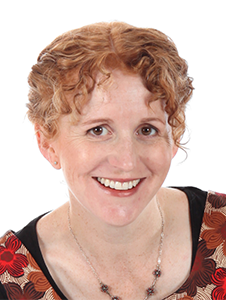
Ceridwen Fraser.
Ceridwen (Crid) Fraser’s research focusses on the dynamics of marine and polar ecosystems of the Southern Hemisphere. Her research combines genetics and ecology with aspects of earth sciences - such as oceanography and geology - to understand the processes that influence patterns of biodiversity. Crid’s team’s interdisciplinary research has helped reveal how plants and animals respond to large disturbances, for example, showing that during past ice ages, many land-based Antarctic species sheltered near warm volcanoes, while many marine species were scoured from sub-Antarctic shores by sea ice, recolonising via oceanic rafting. Crid’s team’s research has important implications for management of biodiversity into the future, particularly in the face of rapid climate change, and has often featured in the global news. The impact of Crid’s work has been recognised by several prestigious national and international awards and fellowships. She has led major externally-funded research projects, and has collaborative networks reaching across all continents.
Andrew Gorman
Department of Geology
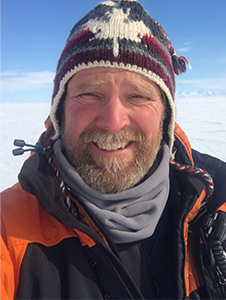
Andrew Gorman.
Andrew is a geophysicist who uses sound waves to image and analyse underground geological features – without actually having to dig them up. To use a medical science analogy, he is a radiologist for the Earth. Seismic reflection imaging methods have been around for more than a century, during which time technological advances have greatly increased their effectiveness and reach. Most of Andrew’s work in this field involves imaging seafloor geology – with research applications ranging from reconstructions of past climate using observations of seafloor sediment, to investigating the distribution and movement of fluids within continental shelves, to mapping earthquake generating faults. Andrew’s data are collected using sound sources and receivers that are towed behind a research vessel, or deployed on the surface of Antarctic ice shelves. He and his students collaborate with other Earth and climate scientists to make determinations of geological history that lead to better predictions of future change.
Richard Greatbanks
Dean's Office, School of Business
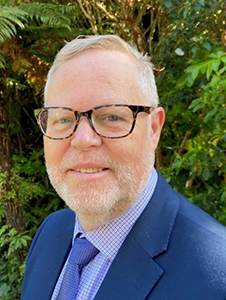
Richard Greatbanks.
Richard is a chartered engineer with a background in manufacturing engineering and management, having held multiple roles within the UK aerospace industry. These practitioner years were increasingly spent in an advisory capacity, working with other businesses to improve performance and address complex problems to increase their productivity and competitiveness. This eventuated the move into academia in the field of business management, with academic positions at three UK universities. Richard joined the University of Otago School of Business in 2005, applying his deep understanding of business excellence to the improvement of New Zealand’s productivity performance in service industries, specifically the critical challenges facing healthcare, not-for-profit, and public sector organisations and environments. Richard has a passion for the facilitation of business success. His areas of research include the advancement of organisational performance and productivity through a focus on quality leadership, operational excellence, process optimisation and the cultural drivers of high performance.
Peter Jones
Department of Physiology
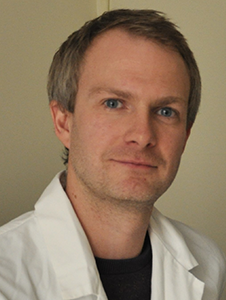
Peter Jones.
Pete’s research looks at how calcium controls the function of cardiac cells and neurons. Specifically, he aims to understand how changes in calcium signalling leads to arrhythmias, heart failure, seizures, and Alzheimer’s disease. Pete does this by utilising state-of-the-art microscopy to image individual proteins within cells to observe when, and how, they release calcium. Graduating from the University of Leeds, he pursued an early research career in Canada before moving to Otago. He is co-director of the HeartOtago research theme, a group of cardiovascular researchers, clinicians, and cardiothoracic surgeons, who use human tissue to specifically address cardiovascular diseases impacting the lives of patients in Aotearoa. Pete has a passion for engaging with the community via HeartOtago and his role as a board member of the New Zealand International Science Festival. His research is funded by the Health Research Council, Royal Society Marsden Fund, the Heart Foundation, and the Neurological Foundation.
Joyce Koh
Higher Education Development Centre
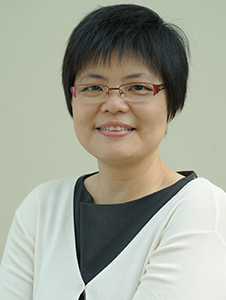
Joyce Koh.
Joyce has professional experiences in instructional design and teacher education. She co-designs innovative online and classroom-based instructional solutions with teaching staff while researching how to improve their professional development. She is particularly interested in how design thinking can help teachers to confront emerging technologies and student needs through more effective pedagogical change. Through various research grants that she has won as Principal Investigator, Joyce has developed and published design thinking tools, including technological pedagogical content knowledge (TPACK) surveys and design rubrics for student-centred lesson creation, a flipped learning design framework, and survey instruments for assessing teachers’ and students’ online dexterity. Her TPACK instruments are being used internationally to assess teachers’ technology integration practices. Her TPACK publications, and a co-authored Springer book on Design Thinking for Education are highly cited. Joyce actively collaborates with international researchers and her PhD students to create and study instructional solutions for emerging higher education challenges.
Cameron Lacey
Dean's Department (UOC)
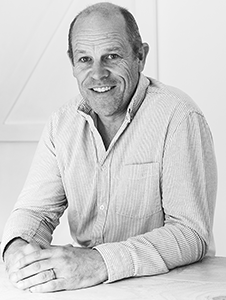
Cameron Lacey.
Cameron (Te Ātiawa) is a consultant psychiatrist at the Department of Psychological Medicine and previously Head of Department of Māori Indigenous Health Innovation, University of Otago, Christchurch. Cameron’s diverse research has spanned Māori mental health, Psilocybin-assisted therapy for depression, mood disorders, virtual reality for anxiety disorders, psychosis, medical education, and psychiatric comorbidity in cardiology and neurology. This research is highly collaborative with close ties to colleagues and teams based out of the University of Otago, Dunedin and Wellington, as well as mental health service providers and NGOs across the motu. The Māori and Bipolar HRC project team was awarded the Nature Inclusive Health Research award in 2023. Cameron has served on the HRC Māori Health Committee and HRC grant assessing committees to review the quality of research and its responsiveness to Māori. He is also sub-editor for the NZMJ and ANZJP and is on the board of the Canterbury Medical Research Foundation.
Mark Lokman
Department of Zoology
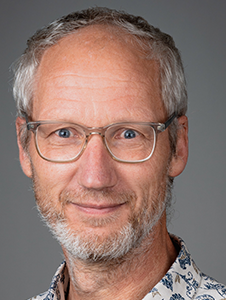
Mark Lokman.
Mark has had a life-long fascination with fish, especially their migration and spawning biology. That fascination has shaped his research pursuits, which have focused on the role of hormones and their downstream effects on gene expression in migratory and reproductive physiology, principally in freshwater eels. With a background in aquaculture, Mark applies some of his basic research to industry-relevant questions in collaboration with the salmon industry and several CRIs – the applied angle has been of interest to a suite of graduate students over the years. Mark has worked closely with staff at the University of Yangon, Myanmar, to help develop and update teaching resources in fisheries and aquaculture – and he considers this highly rewarding, despite the ongoing turmoil in that country. Work in this space is continuing. He is currently the Head of the Department of Zoology.
Nigel Lucas
Department of Chemistry
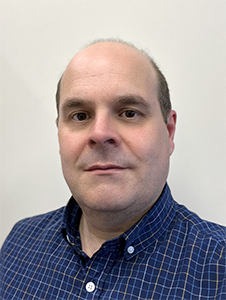
Nigel Lucas.
Nigel’s research revolves around the design and synthesis of new molecules and materials of interest for their optical and electronic properties, application in sensing, energy storage and improved chemical catalysis. While the unifying theme of the work is the synthesis of novel materials, these studies are coupled with a range of structural and physicochemical investigations to better understand structure-property relationships. His expertise in X-ray crystallography is applied, not only to studying materials prepared in the lab at Otago, but also a number of fruitful collaborations, both local and international, which benefit from the precise atomic-level structural information afforded by the technique. Nigel is a Principal Investigator in the MacDiarmid Institute for Advanced Materials and Nanotechnology, and He Honoka Hauwai, the German-NZ Green Hydrogen Centre based at Otago. He has served as the Associate Dean (Postgraduate) for the Division of Sciences and is currently Head of the Department of Chemistry.
Sunyoung Ma
Department of Oral Rehabilitation
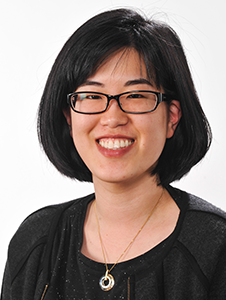
Sunyoung Ma.
Sunyoung is a specialist prosthodontist with a particular interest in various treatment modalities using dental implants and artificial tooth materials for replacing missing natural teeth. She has led several studies evaluating zirconia and titanium implants as well as crowns and partial denture frameworks fabricated with different materials using digital technologies. The primary focus of her research is to find the most effective and efficient way to improve the oral health-related quality of life of patients needing tooth replacement. Sunyoung has supervised multiple undergraduate and postgraduate research students. She is a three-time recipient of the SJWRI Undergraduate Research Supervisor Award and the winner of the J. Morita Junior Investigator Award for Geriatric Oral Research (International Association for Dental Research). This year, she was awarded the University of Otago Award for Excellence in Teaching. Sunyoung has been the Associate Dean (Postgraduate) at the Faculty of Dentistry since 2020.
Peter Mace
Department of Biochemistry
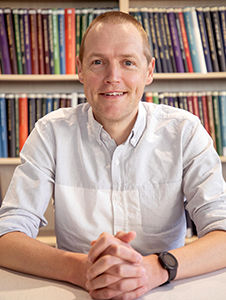
Peter Mace.
Peter’s research tackles how the three-dimensional structure of proteins allows them to control cellular behaviour. In the context of human cells, his work aims to understand protein signalling in progression and treatment of cancer, inflammation and metabolic diseases. He is enthusiastic to teach at all levels how molecular knowledge impacts critical biological processes. Peter's early career was supported by fellowships from the Division of Health Sciences, the United States Department of Defense, and a Rutherford Discovery Fellowship from the Royal Society of New Zealand. He has received major research grants from the Marsden Fund, and Health Research Council of New Zealand. Peter is the President of the New Zealand Society for Biochemistry and Molecular Biology, Associate Dean (Research) for the School of Biomedical Sciences, and in 2022 was the recipient of the University of Otago Rowheath Award for early career research.
Lynn McBain
Department of Primary Health Care and General Practice (UOW)
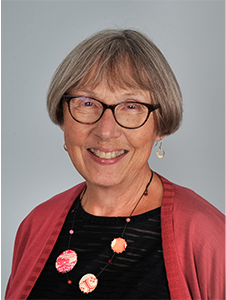
Lynn McBain.
Lynn is a specialist general practitioner, Head of Department of Primary Health Care and General Practice, and Deputy Dean at University of Otago Wellington. Her research interests span two main areas relating to her dual professional roles. She has undertaken research and worked as part of teams investigating and evaluating health services and how the findings can be translated into primary care. Understanding primary mental health care and evaluation of primary mental health initiatives led to the implementation of different models of primary mental health care in general practice in Aotearoa. Recent and ongoing research includes the implementation of HPV based cervical cancer screening in Aotearoa. She has a strong interest in educational research implementing and researching programmes at UOW in consultation skills, reflection in palliative medicine, and more recently oral health knowledge and skills for medical students. She has held a number of leadership roles in the primary care sector and now is concentrating on leadership at Otago.
Rachael McLean
Department of Preventive and Social Medicine
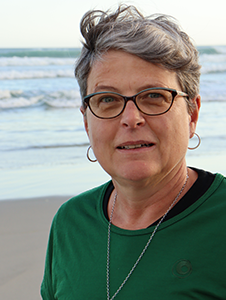
Rachel McLean.
Rachael is a public health physician with expertise in nutrition. She researches the relationship between food, nutrition and chronic disease, including cardiovascular disease, cancer, obesity, and diabetes. Her research examines the environmental influences that determine how and what people eat, with a focus on improving health and equity. Much of Rachael’s research focuses on public health approaches to reducing salt intake. Her research on methods to measure salt intake contributes to international best practice, and scientific debate. This work has informed dietary recommendations nationally and internationally. Her research with national and international collaborators examines ways to implement effective policy in this area. Rachael enjoys working with collaborators across Aotearoa, and supervising research students. She has undertaken research for and advised the New Zealand government, Stroke and Heart Foundations, and hopes to change policy and food environments to make healthy eating easier for individuals, whānau and communities.
Antoni Moore
School of Surveying
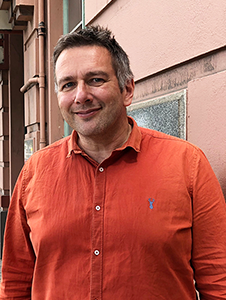
Antoni Moore.
Antoni Moore is a geographical information scientist (GIS) with particular interest in spatial communication through maps and other geographical visualisations. He has degrees in geography and GIS from Portsmouth (BSc Hons), Leicester (MSc) and Plymouth (PhD). He joined Otago’s Information Science department in 2001, before moving to Surveying in 2008. In his core research, Antoni explores diverse approaches to the challenge of displaying mapped data, so that they communicate their purpose more effectively. These approaches include popular art media (comics), geographic theory (time geography), information visualisation (graph networks) and prevalent technologies (virtual and augmented reality). He also applies spatial analysis and modelling to various topics, including aspects of health, exercise, land use and the effects of sea level rise. He is PI on the Marsden-funded Strand research project, working with a multidisciplinary team to study climate change-related loss of coastal property value. Antoni is Dean of the School of Surveying and President of the New Zealand Cartographic Society.
Ivan Sammut
Department of Pharmacology and Toxicology
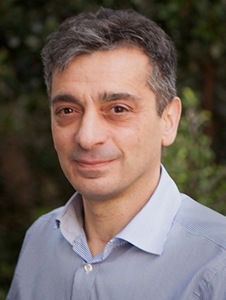
Ivan Sammut.
Ivan is a pharmacologist with expertise in drug discovery and drug delivery, specialising in cardio-renal disease. He is passionate about teaching therapeutics and safe prescribing for which he has received several teaching awards. He is the Associate Dean Medical Education for the School of Biomedical Sciences. Ivan completed his postdoctoral work in cardiovascular research at the Royal Brompton and Harefield Hospitals (National Heart and Lung Institute) Imperial College London, gaining a strong understanding in clinical therapeutic management. His research interests include novel therapies for cardio-renal injury, pharmacological intervention in seizure-induced cardiomyopathy, and renal denervation. His group has been funded by the Health Research Council, Marsden, Heart Foundation and MBIE. A key focus of Ivan’s research has been the understanding of endogenous transmitters such as carbon monoxide as protective molecules during cardiac surgery and in transplantation. His team’s collaborations with HeartOtago has led to the design and development of these novel compounds as therapeutic agents.
Susan Sandretto
University of Otago College of Education
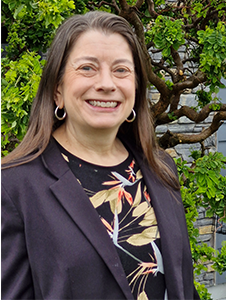
Susan Sandretto.
Susan’s research programme takes a critical lens to literacy, teacher education, and educational policy. Her work with primary and secondary school teachers and their students has focussed on the development of critical literacy, a sceptical stance towards all texts. An important component of literacy, critical literacy acknowledges the power of texts to shape our understandings of ourselves, others and the world. Her published resources provide models to shift classroom practice. As an Ohu Mātanga (Team Writer) for the English Learning Area, Susan’s research informs educational policy at the national level for the refreshed curriculum Te Mātaiaho and the pedagogy statement contained in the Common Practice Model, which supports the Literacy & Communication and Maths Strategy. Susan has focused on the unintended consequences of school choice educational policies that result in decreased rates of active transport to school as a member of the Built Environment Active Transport to School research group.
Sally Shaw
School of Physical Education, Sport and Exercise Sciences
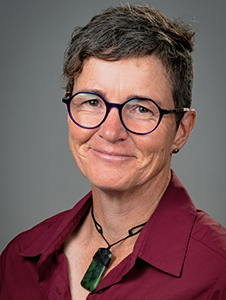
Sally Shaw.
Sally’s research examines diversity, equity, and inclusion (DEI), and she is a leader in the development of qualitative research methods and methodology in sport management. Her research career began with a focus on gender relations. More recently, she has conducted research with and for lesbian, bisexual, gay, takatāpui, queer, and ally (LGBTQ+) communities in a variety of sport organisations. This includes research on the experiences of LGBTQ+ women and non-binary people at the 2023 FIFA Women’s World Cup. Her research demonstrates that DEI needs good governance, and good governance promotes DEI, benefitting all sport communities. She researches collaboratively with local, regional, and national sport organisations, influencing policy development and implementation. Sally has written numerous academic articles for leading journals, research-informed reports for sport and funding organisations, and provides media commentary on gender and sexuality in sport. Sally holds multiple Research Fellow positions in the USA and South Africa.
Wayne Stephenson
School of Geography
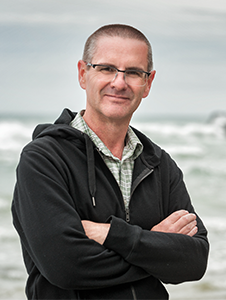
Wayne Stephenson.
Wayne is a geographer with research and teaching interests in coastal geomorphology. His research is focussed on how rock coasts respond to tectonics and climate change. Since rock coasts are eroding landforms, the common expectation is that rising sea level will increase the pace of erosion, but recent results have demonstrated complex responses including diminished erosion under some sea level rise scenarios. Investigations of the impact of the 2016 Kaikōura earthquake on that coastline has been funded by a Marsden standard grant. Wayne is a principal investigator of a project in the CoRE Coastal People South Skies working with tangata whenua to understand the impact of sea level rise on their coastal communities. He has supervised numerous masters and doctoral candidates who have gone to consultancies, postdocs, and academic positions in Australia, USA, UK and China. Since 2021 he has served as Associate Dean Graduate Studies for Humanities.
Sarah Wakes
Department of Mathematics and Statistics
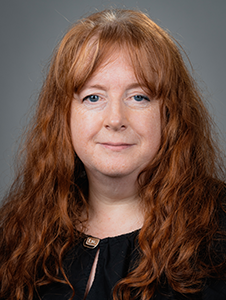
Sarah Wakes.
Sarah is an applied mathematician and engineer. She has been Head of the Department of Mathematics and Statistics since 2020. She researches aspects of engineering design, fluid dynamics and sustainability. She is an expert in Computational Fluid Dynamics with a particular focus on applications of flow simulation to engineering design and wind dynamics over complex coastal geomorphology. Sarah is part of a MBIE project with Plant and Food designing an innovative open ocean aquaculture structure. Other work includes developing a dynamic model for the effect of vegetation roughness on dunes. Sarah also conducts research on engaging students in distance teaching through active learning, based on the teaching she does on the sustainability of materials and mathematics for scientists at Summer School. She was made a Fellow Of Engineering New Zealand in 2021 in recognition of her contribution to engineering education and research and is a chartered engineer through the Institute of Marine Engineering, Science and Technology.
Peter Whigham
School of Computing
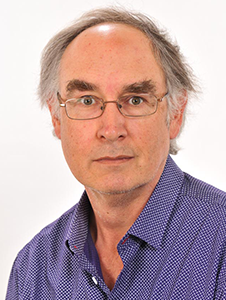
Peter Whigham.
Peter is a computational modeller whose research ranges from developing fundamental algorithms through to applications in a broad range of disciplines. His interest in modelling started in the early 1990s, working at CSIRO in Australia. Developing approaches to understand ecological systems led to a fundamental question: What is an appropriate language to describe and model spatial and temporal processes? He developed an evolutionary algorithm to search the space of possible sentences defined by a grammar, a model that is extensively used today in the field of Genetic Programming. He has worked with academics from Surveying, Design Studies, Economics, Finance, Public Health, Medicine, Botany, Zoology, Geography, Anatomy and Structural Biology and Physical Education and is proud to be a multi-disciplinary researcher. He has received four teaching awards, supervised 22 PhD students to completion, and is currently working on satellite methods for detection of methane, price elasticity in economics and sleep patterns in adolescents.
Stephanie Woodley
Department of Anatomy
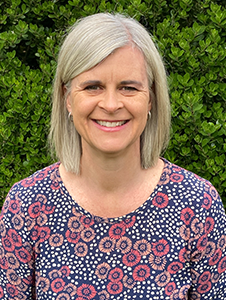
Stephanie Woodley.
Steph is a clinical anatomist with a particular research interest in musculoskeletal conditions of the pelvis, hip joint and lower limb. With a professional background in physiotherapy, she endeavours to produce applied research that is relevant to clinical practice. Recent collaborative projects have focused on gluteal muscle structure and function in people with hip osteoarthritis, and the impact of targeted exercise programmes; the management of women with pregnancy-related pelvic girdle pain; and, digital technologies for women’s pelvic floor muscle training to manage urinary incontinence. Steph has been a long-standing committee member and is current editor of the New Zealand Journal of Physiotherapy. She is passionate about her role of section editor for Gray’s Anatomy (pelvic girdle and lower limb, 42nd and 43rd editions), one of the most influential and comprehensive anatomical textbooks worldwide. Steph is currently the Deputy Head of Department (Teaching).
Staff promoted to Research Professor (in alphabetical order)
Anitra Carr
Department of Pathology & Biomedical Science (UOC)
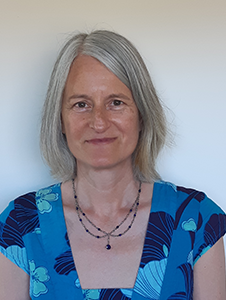
Anitra Carr.
Anitra is a biomedical researcher and director of the Nutrition in Medicine Research Group. Renowned for her expertise around the roles of vitamin C in human health and disease, Anitra’s translational research spans the impact and mechanisms of action of oral and intravenous vitamin C within diverse health conditions such as infection, obesity, diabetes, cancer, and subjective mood. Anitra conducts a variety of studies, including observational, pharmacokinetic, and randomised controlled trials. She also engages in epidemiological research, utilising international datasets to inform vitamin C intake recommendations. Her influence extends to advising international government authorities on intake recommendations. Passionate about knowledge dissemination, Anitra has established a Continuing Medical Education programme for healthcare professionals, highlighting the significance of vitamin C. Recognising her sustained research excellence, Anitra was awarded the University of Otago Christchurch Gold Medal in 2021. She is also an Associate Editor for the journal Nutrition Research.
Ricci Harris
Department of Public Health (UOW)
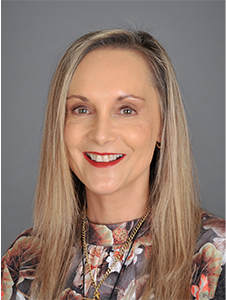
Ricci Harris (Ngāti Kahungunu, Ngāi Tahu, Ngāti Raukawa)
Ricci (Ngāti Kahungunu, Ngāi Tahu, Ngāti Raukawa) is a public health physician and Kaupapa Māori epidemiologist. Her research is primarily concerned with upholding Māori rights to health and health equity as ensured by Te Tiriti o Waitangi and in-line with international Indigenous rights. She draws on Kaupapa Māori Research theory to undertake and develop decolonial approaches to epidemiology that centre Māori and are contextualised within systems of ongoing racism and colonialism. Ricci has a long history of research in monitoring Māori health and equity, and is a staunch advocate for high quality ethnicity data. She is internationally recognised for her scholarship on racism as a determinant of health for Māori and Indigenous peoples. Ricci’s research is collaborative, and she has been privileged to work with many Māori health researchers, advocates, organisations and communities who have influenced her thinking and approaches to research.
Ehara taku toa i te toa takitahi, engari he toa takitini.
James Stanley
Dean's Department (UOW)
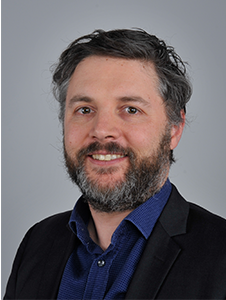
James Stanley.
James is a biostatistician and researcher at the University of Otago, Wellington. His research is underpinned by a commitment to improving equity and health outcomes for individuals and communities. His main research themes cover equity in cancer outcomes; how racism impacts on health; and measurement of the health impacts of comorbidity and multimorbidity. This work has spanned numerous projects, funded by the Health Research Council and others, in roles as a project lead and collaborative team member, working with diverse teams of committed researchers. James is also passionate about improving the research skills of students and staff; he has supervised many postgraduate students and taught staff and students how to get real-world evidence from data through both formal and informal teaching. He is Director of the Biostatistics Group at UOW; Academic Co-Director of the UOW Public Health Summer School; and has advised several government departments on research and statistical issues.
Moana Theodore
Department of Psychology
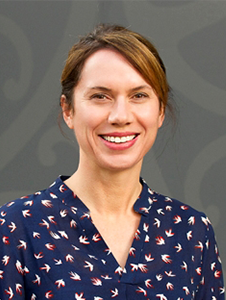
Moana Theodore (Ngāpuhi).
Reremoana (Moana) Theodore (Ngāpuhi) is the Director of the Dunedin Multidisciplinary Health and Development Study (the Dunedin Study) and the National Centre for Lifecourse Research. Her research is multidisciplinary in nature and she has expertise in lifecourse epidemiology, the development of chronic disease, and Māori health. Moana is passionate about undertaking research that makes a positive difference to children, young people, and their families by informing prevention and intervention efforts as early as possible. Moana has been involved in a number of longitudinal studies including the Dunedin Study, the Graduate Longitudinal Study of New Zealand, and Te Kura Mai i Tawhiti - a programme examining the long-term positive impacts of kaupapa Māori education on children and whānau. Moana has served in several leadership and governance roles in the research sector including as a Councillor of the Royal Society Te Apārangi and Deputy Director of the Ageing Well National Science Challenge.
Promotions to Associate Professor
- Katharina Blattner (Va'a o Tautai - Centre for Pacific Health General Practice and Rural Health, DSM)
- Jennifer Cattermole (Office of the Head of School, Performing Arts)
- Mike Garratt (Department of Anatomy)
- Lesley Gray (Primary Health Care and General Practice, UOW)
- James Harding (Theology)
- Naomi Ingram (University of Otago College of Education)
- Sheri Johnson (Department of Zoology)
- Josephine Johnston (Bioethics Centre)
- Ramakrishnan Mani (School of Physiotherapy)
- Gwynaeth McIntyre (Department of Classics)
- Melissa McLeod (Department of Public Health, UOW)
- Robert Odolinski (School of Surveying)
- Tracy Perry (Sciences Divisional Office)
- Nic Rawlence (Department of Zoology)
- Annika Seppala (Department of Physics)
- Rebecca Stringer (Sociology, Gender Studies and Criminology)
- Robert Van Gorder (Department of Mathematics and Statistics)
- Esther Willing (Kohatu Centre for Hauora Māori)
Promotions to Research Associate Professor
- Gabrielle Jenkin (Department of Psychological Medicine, UOW)
- Paula King (Department of Public Health, UOW)
- Ariyapala Samarana (Biostatistics Centre)
- Jonathan Squire (Department of Physics)